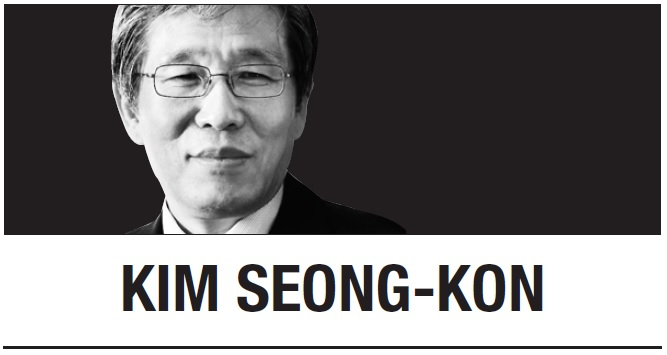
Three futuristic Hollywood thrillers, “Doom,” “Dune” and “Heart of Stone,” illuminate compelling issues we are now facing due to our problematic politicians.
In “Doom,” which is set in 2046, an unknown creature attacks researchers at the Union Aerospace Corporation on Mars. Eight marines, including team leader, Sergeant “Sarge” Mahonin, and John “Reaper” Grimm, arrive at the research facility to eliminate the unidentified assailant. They learn that UAC experimented on humans, using Chromosome that could radically enhance the subjects’ abilities. Unfortunately, the experiment went wrong and mutated the subjects into hideous monsters. Despite disastrous failure, a few people developed superhuman abilities, while retaining their humanity.
“Sarge” orders to kill all the subjects of the experiment, including uninfected survivors of women and children. He even shoots to kill one of his men who refuses his order. By doing so, “Sarge” shows that he is no different from the hideous monsters he is trying to eliminate.
Soon thereafter, bitten by a mutant creature, “Sarge,” too, turns into a monster, and “Reaper” has to kill him. “Sarge” says, “I’m not supposed to die,” because he is the protagonist of the movie. However, even the protagonist has to die if he turns into a monster. Scientists who did unethical genetic experiments, too, perish at the hands of the monsters they created.
The scientists in “Doom” remind us of our politicians, who have tested their political ideologies on humans claiming to be creating a better world. Instead, they have ruined people’s lives.
Such politicians also resemble “Sarge,” who is inhumane enough to sacrifice innocent people’s lives in the name of “direct orders” from superiors or “collateral damage” in pursuit of the "greater good." Those people all perish by their mutant creation or wrong convictions.
The 2021 film, “Dune,” is set in the distant future, when the galaxy is in a state of disruption. Baron Vladimir Harkonnen is ruthlessly colonizing and exploiting Arrakis, a desert planet that produces “Spice,” a valuable psychotropic substance that is essential for interstellar travel. Emperor Shaddam, who is jealous of Duke Leto Atreides, ruler of the planet Caladan, appoints Leto the fief holder of Arrakis so he would be destroyed by angry Harkonen.
When Leto’s son, Paul, arrives at Arrakis, its natives treat him as if he were a messianic super-being. Indeed, Paul has special abilities and aptitude as a great leader, including clairvoyance and vision that are indispensable for guiding humanity to a better future and bringing peace to the war-torn galaxy. The movie presents Paul as a peacemaker who can put an end to war among the planets. He will replace the jealous, incompetent emperor someday and become the savior of the universe by prohibiting invasions and colonization.
In “Dune,” we can find a strikingly similar parallel universe of our contemporary Earth, in which the leaders of totalitarian realms wrongfully think of themselves as mighty emperors. Like Emperor Shadamm, they believe they have a right to invade smaller countries and colonize them. As a result, they do not hesitate to start wars, terrorizing other countries. “Dune” also reflects our wish to have a great leader like Paul who can be a peacemaker in this turbulent world.
In the 2023 movie, “Heart of Stone,” Rachel Stone is an MI6 technician, and at the same time, a competent field agent of the Charter, a secret peacekeeping agency. The Charter uses “The Heart,” an AI quantum supercomputer that can hack into any digital program.
Stone’s MI6 colleague, Parker, was in an operation in Chechnya 8 years ago and almost killed due to the Charter’s strikes to destroy “a weapon cache” in that area. Full of grudges and resentment, he seeks vengeance. Using the power of “The Heart” he comes to possess, Parker ruthlessly kills innocent people in a personal vendetta that he presents as the "greater good."
Parker tries to justify his brutal revenge, saying, “I’ve served my entire life, Rachel, and none of it mattered. The world is still in chaos. The Heart has the power to change everything. But Charter is using it to keep things exactly as they are.”
Stone reprimands him, saying, “You don’t want to change anything. You just want to be the one in charge. The first thing you did with all that power was kill people. The problem with men like you, Parker, is that your power is only ever based on threats and violence.”
Indeed, Parker does not have what Stone has, a warm heart.
Watching “Heart of Stone,” we come to realize why our vengeful politicians who had suffered during the dictatorship did exactly the same thing as the dictators did to their political enemies. Those politicians call for “social change” for a better world, but they don’t want to change anything. They “just want to be the one in charge.”
The above three movies illustrate the problems of our political leaders these days. They warn that our politicians will be doomed if they do not change.
Kim Seong-kon
Kim Seong-kon is a professor emeritus of English at Seoul National University and a visiting scholar at Dartmouth College. The views expressed here are his own. -- Ed.







![[Today’s K-pop] Blackpink’s Jennie, Lisa invited to Coachella as solo acts](http://res.heraldm.com/phpwas/restmb_idxmake.php?idx=644&simg=/content/image/2024/11/21/20241121050099_0.jpg)